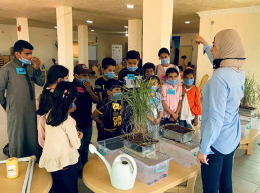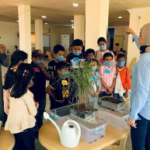
Description of the project: WADI NGO developed a scientific and sustainable ecosystem restoration model linking biodiversity and watershed restoration to ecotourism-based income generation for women and youth. The NGO works closely with the Dissi Women’s Cooperative which operates native tree nurseries (Aleppo pine, Carob and Atriplex shrubs) employing Bedouin women. WADI has trained 43 local women to become “citizen scientists”, to cultivate native species, prevent soil erosion and support groundwater recharge. By creating permanent and seasonal job opportunities with equal access for women and men, this project promotes social inclusion, and environmentally conscious practices.








